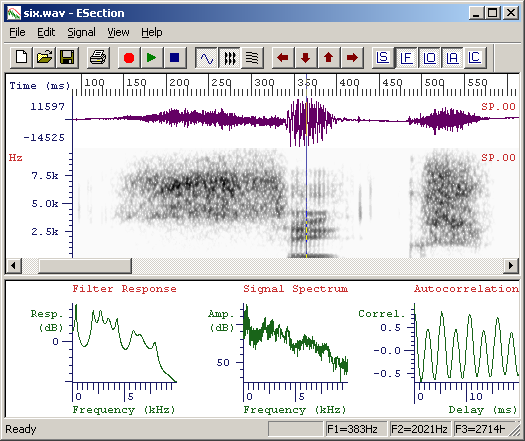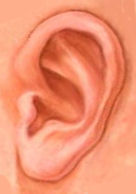
SFS/ESECTION Vs 2.7
Windows Tool for Spectral Cross-Sections
ESECTION is a free program for looking at spectral cross-sections of regions of a speech signal. With ESECTION you can display a waveform or a spectrogram of a speech signal and look at the spectrum and other related analyses at a particular time or across a particular region of the signal.

Currently supported cross sections are: Signal Spectrum, Filter Response, Source Spectrum, Autocorrelation, Cepstrum. The program also calculates and displays the fundamental and formant frequencies of the signal.
Read the ESECTION help file on-line.
Download and Installation
SFS/ESECTION is only available from:
Download the file called esection2dd.exe into a temporary directory. Then find and run the file to unpack and install.
Want to learn more?
If you find the study of speech interesting, why not visit the Internet Institute of Speech and Hearing at www.speechandhearing.net ? There you will find tutorials, laboratory experiments, reference material, and details of e-mail lists and discussion groups.
Feedback
Please send suggestions for improvements and reports of program faults to sfs@pals.ucl.ac.uk.
Please note that we are unable to provide help with the use of this program.
Copyright
ESECTION is not public domain software, its intellectual property is owned by Mark Huckvale, University College London. However ESECTION may be used and copied without charge as long as the program and help file remain unmodified and continue to carry this copyright notice. Please contact the author for other licensing arrangements. ESECTION carries no warranty of any kind, you use it at your own risk.


